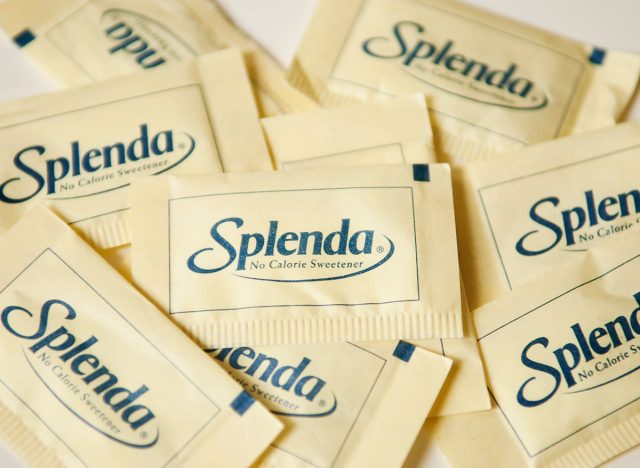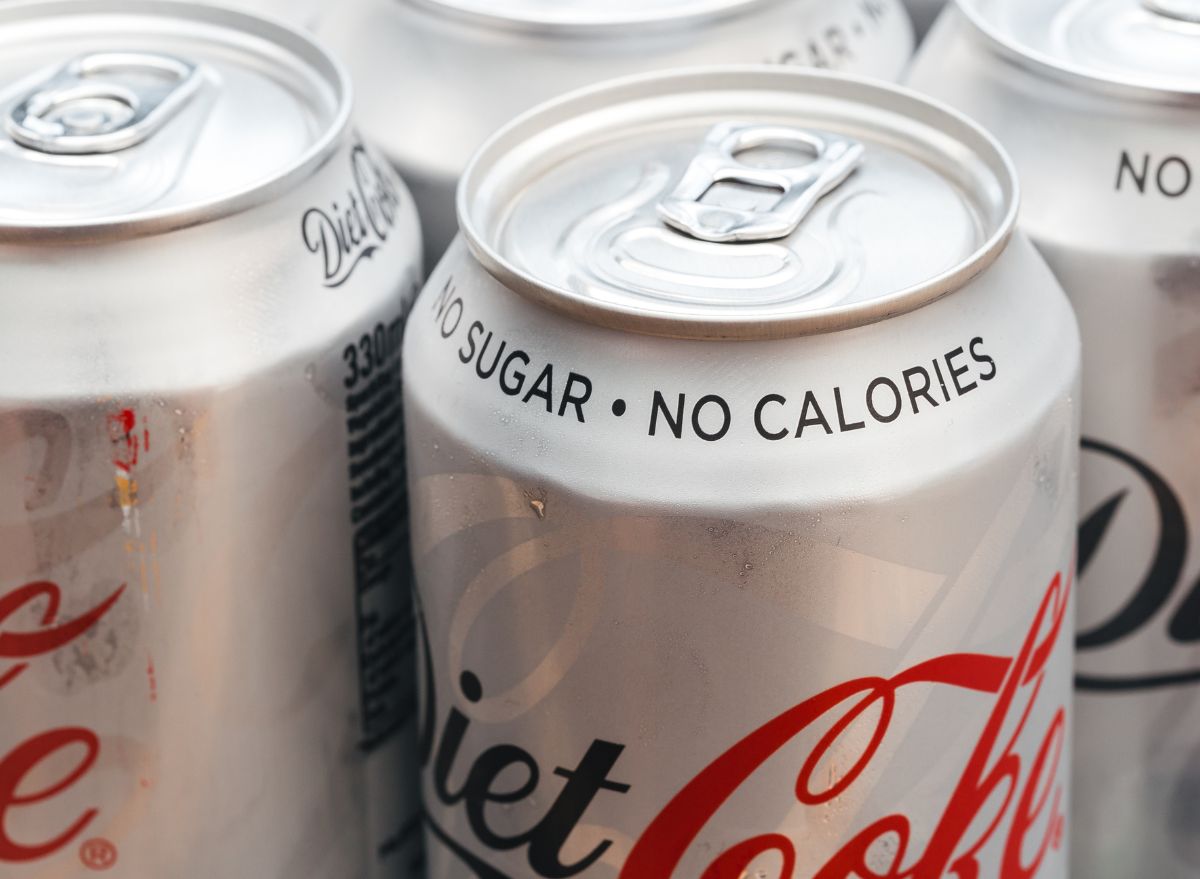Artificial sweeteners—you know, the ones found in diet sodas, sugar-free baked goods, and the little packets at coffee shops—have been the subject of debate for quite some time, as research on their safety shows mixed results. A review published in Frontiers in Nutrition summarized that some studies show that these artificial sweeteners may help you eat less and lose weight, other studies found no effect on satiety, and others found a link between intake and higher rates of obesity. Suffice it to say, more research is needed to analyze the long-term effects of consuming these synthetic ingredients, and the heat behind this debate is growing. On July 29, 2023, Reuters exclusively reported that the World Health Organization (WHO) is set to declare aspartame, which is also sold to consumers as Equal and NutraSweet, as “possibly carcinogenic to humans” next month.
Popular items like Diet Coke, Trident gum, and certain types of Snapple tea contain aspartame, so the announcement that this sweetener may possibly lead to cancer is significant for both the consumer and the companies involved. But as with any major health-related declaration, this announcement brings with it quite a bit of confusion and conflicting opinions coming from both sides of the debate.


There are multiple groups of people involved in the coming announcements next month. The WHO’s cancer research arm is called the International Agency for Research on Cancer (IARC), and this is the group of experts that has made the decision to give aspartame the label of “possibly carcinogenic to humans” next month. According to Reuters, the IARC’s role is to look at existing published evidence regarding a substance in order to determine whether or not it is hazardous.
However, what this group doesn’t do is determine how much of something you need to consume in order for the substance to potentially cause harm. This job is given to a separate branch of the WHO, called the Joint WHO and Food and Agriculture Organization’s Expert Committee on Food Additives (JECFA).
If this isn’t already confusing enough, it’s said that both groups—IARC and JECFA—are set to release their separate statements on aspartame on the same day—July 14, 2023.


With the upcoming announcement, some people in the industry believe it may cause unnecessary panic from consumers. Frances Hunt-Wood, secretary general of the International Sweeteners Association (ISA), told Reuters, “IARC is not a food safety body and their review of aspartame is not scientifically comprehensive and is based heavily on widely discredited research.” Reuters also interviewed Kate Loatman, the International Council of Beverages Association’s executive director, who said the announcement “could needlessly mislead consumers into consuming more sugar rather than choosing safe no- and low-sugar options.”
READ RELATED: Don’t Ignore That Shoulder Pain: Causes Of Shoulder Pain People Ought To Know
Along these same lines, there is also some concern as to whether or not JECFA will change its guidelines on how much aspartame is safe to consume before it becomes “carcinogenic.” Since the 1980s, JECFA has stated that aspartame is safe to consume within a large daily limit, and Professor McConway recently told The Guardian that this limit “would require a very large daily consumption of Diet Coke or similar drinks.” If JECFA maintains these guidelines after July 14th, it would mean that the average consumer is most likely not getting close to harmful levels.


Another important component to consider is the level of “carcinogen” a certain food like aspartame is classified under. According to Reuter’s report, the IARC has four different levels for carcinogens: 1) carcinogenic, 2) probably carcinogenic, 3) possibly carcinogenic, and 4) not classifiable. Aspartame falls under “possibly carcinogenic,” meaning that the evidence in humans remains limited. This isn’t to say that the possible dangers should be ignored, but it’s important to know what these confusing terms actually mean in relation to your health.
Some experts believe that artificial sweeteners like aspartame should be avoided as much as possible, regardless of the daily recommended value. According to registered dietitian Lisa Young, PhD, RDN, author of Finally Full, Finally Slim and member of our Medical Expert Board, “As a nutritionist promoting healthy eating, I advocate for eating whole foods free of chemicals, and that includes artificial sweeteners. Even though they are virtually calorie-free, they don’t help to promote weight loss. So it’s best to practice portion control and eat less of the real thing while choosing a diet free of artificial ingredients.”
Samantha Boesch









